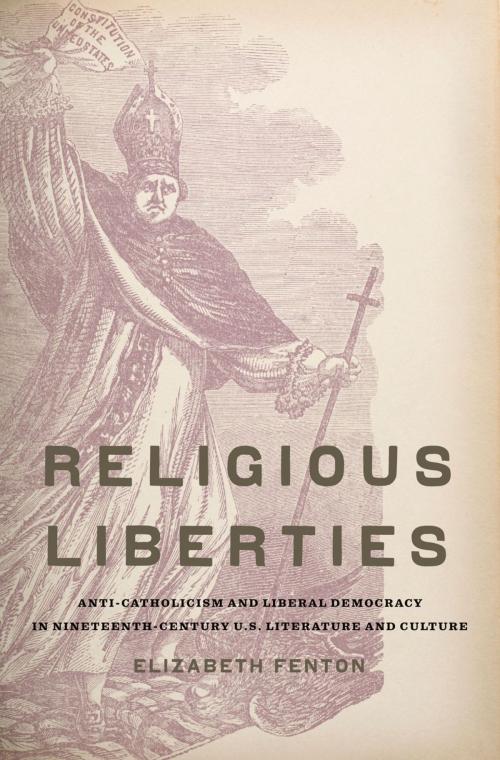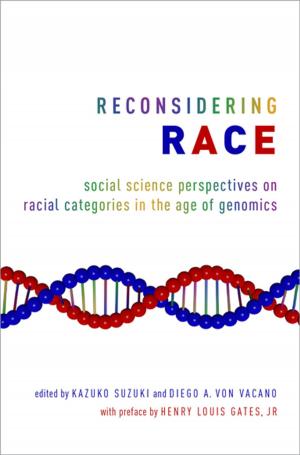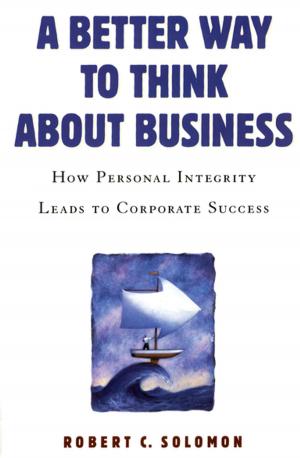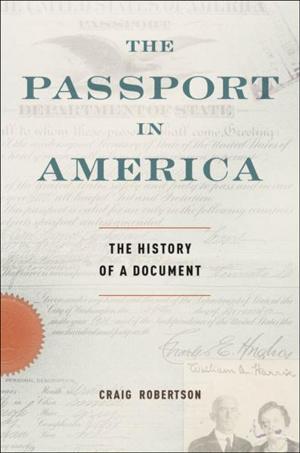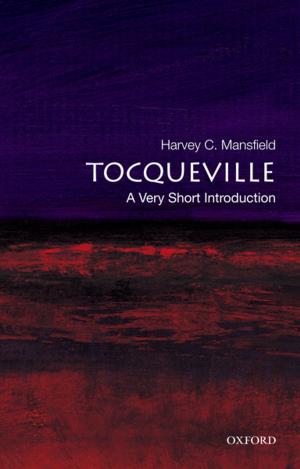Religious Liberties
Anti-Catholicism and Liberal Democracy in Nineteenth-Century U.S. Literature and Culture
Fiction & Literature, Literary Theory & Criticism, American, Nonfiction, Religion & Spirituality, Christianity, Denominations, Catholic, Catholicism| Author: | Elizabeth Fenton | ISBN: | 9780190452520 |
| Publisher: | Oxford University Press | Publication: | April 8, 2011 |
| Imprint: | Oxford University Press | Language: | English |
| Author: | Elizabeth Fenton |
| ISBN: | 9780190452520 |
| Publisher: | Oxford University Press |
| Publication: | April 8, 2011 |
| Imprint: | Oxford University Press |
| Language: | English |
In the late eighteenth and nineteenth centuries, Catholicism was often presented in the U.S. not only as a threat to Protestantism but also as an enemy of democracy. Focusing on literary and cultural representations of Catholics as a political force, Elizabeth Fenton argues that the U.S. perception of religious freedom grew partly, and paradoxically, out of a sometimes virulent but often genteel anti-Catholicism. Depictions of Catholicism's imagined intolerance and cruelty allowed writers time and again to depict their nation as tolerant and free. As Religious Liberties shows, anti-Catholic sentiment particularly shaped U.S. conceptions of pluralism and its relationship to issues as diverse as religious privacy, territorial expansion, female citizenship, political representation, chattel slavery, and governmental partisanship. Drawing on a wide range of materials--from the Federalist Papers to antebellum biographies of Toussaint Louverture; from nativist treatises to Margaret Fuller's journalism; from convent exposés to novels by Catharine Sedgwick, Augusta J. Evans, Nathanial Hawthorne, Harriet Beecher Stowe, Herman Melville, and Mark Twain--Fenton's study excavates the influence of anti-Catholic sentiment on both the liberal tradition and early U.S. culture more generally. In concert, these texts suggest how the prejudice against Catholicism facilitated an alignment of U.S. nationalism with Protestantism, thus ensuring the mutual dependence, rather than the putative "separation" of church and state.
In the late eighteenth and nineteenth centuries, Catholicism was often presented in the U.S. not only as a threat to Protestantism but also as an enemy of democracy. Focusing on literary and cultural representations of Catholics as a political force, Elizabeth Fenton argues that the U.S. perception of religious freedom grew partly, and paradoxically, out of a sometimes virulent but often genteel anti-Catholicism. Depictions of Catholicism's imagined intolerance and cruelty allowed writers time and again to depict their nation as tolerant and free. As Religious Liberties shows, anti-Catholic sentiment particularly shaped U.S. conceptions of pluralism and its relationship to issues as diverse as religious privacy, territorial expansion, female citizenship, political representation, chattel slavery, and governmental partisanship. Drawing on a wide range of materials--from the Federalist Papers to antebellum biographies of Toussaint Louverture; from nativist treatises to Margaret Fuller's journalism; from convent exposés to novels by Catharine Sedgwick, Augusta J. Evans, Nathanial Hawthorne, Harriet Beecher Stowe, Herman Melville, and Mark Twain--Fenton's study excavates the influence of anti-Catholic sentiment on both the liberal tradition and early U.S. culture more generally. In concert, these texts suggest how the prejudice against Catholicism facilitated an alignment of U.S. nationalism with Protestantism, thus ensuring the mutual dependence, rather than the putative "separation" of church and state.
